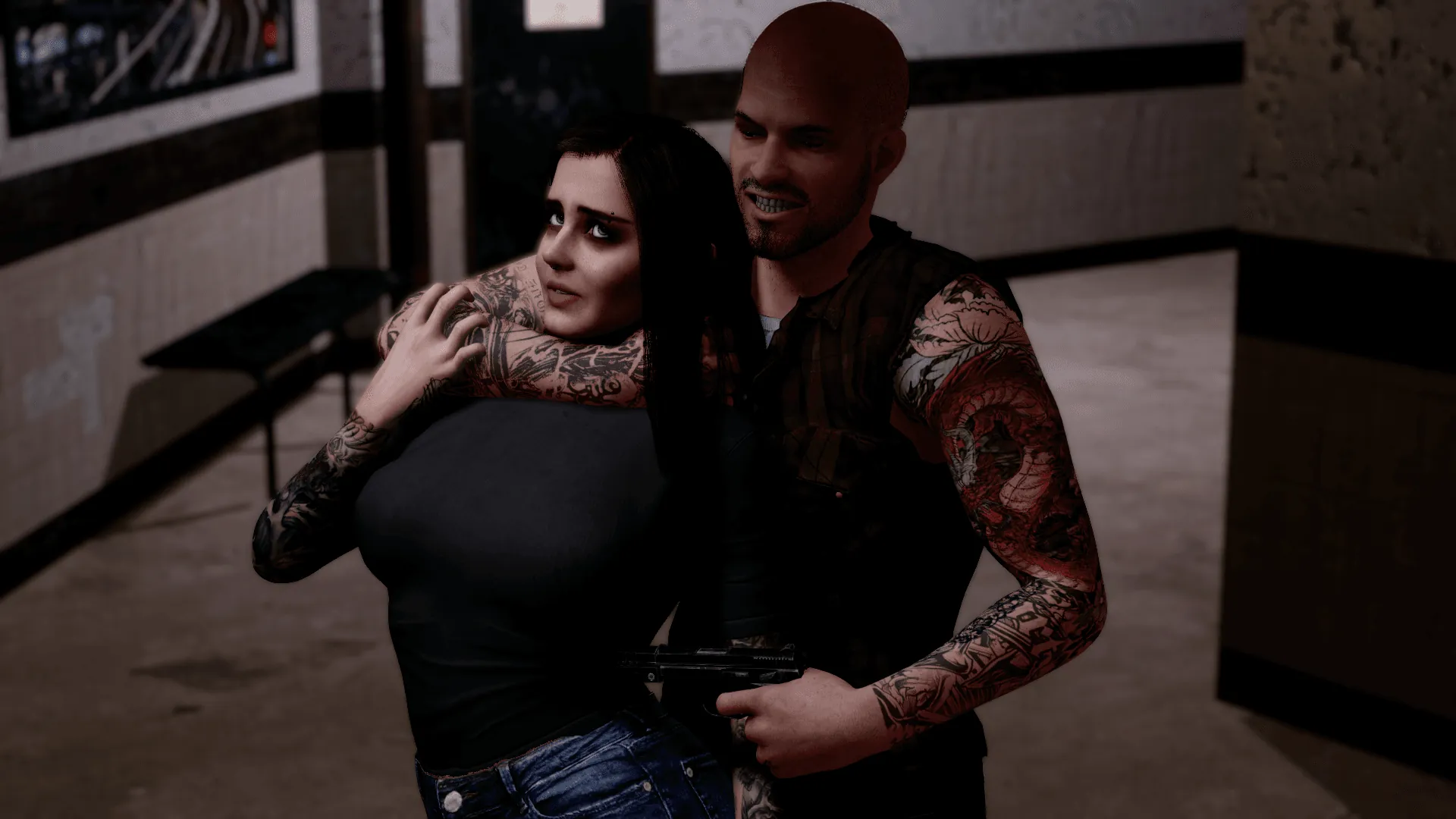
Play Thirty Days
Thirty Days review
Explore the unique narrative, characters, and gameplay of Thirty Days
Thirty Days is a highly immersive, choice-driven visual novel that offers players a unique experience with multiple playthroughs and diverse story outcomes. Centered around spending a month with sheltered 18-year-old fraternal twins, Alex and Kayla, this game challenges players to shape their journey through decisions that influence their personalities and relationships. Whether you aim to nurture, romance, or challenge the twins, every choice matters in this engaging narrative-driven game. In this article, we’ll explore the core aspects of Thirty Days, including its gameplay, characters, and replay value, to help you get the most out of your experience.
Understanding the Gameplay and Narrative of Thirty Days
Stepping into the world of Thirty Days game feels less like starting a new game and more like being handed the keys to a fragile, beautiful family dynamic. You’re not just a spectator; you’re an active participant whose every word and action sends ripples through the lives of two grieving children. This is the core of what makes this choice-driven visual novel so profoundly different and utterly captivating. 🎮
As someone who has guided Alex and Kayla through multiple summers, I can tell you that the experience is never the same twice. The weight of your decisions is palpable from the very first dialogue option, creating a narrative that is uniquely yours. Let’s pull back the curtain on what makes this game so special.
What Makes Thirty Days Unique? ✨
Most narrative games give you a fixed role. You are the hero, the detective, the student. The Thirty Days gameplay mechanics flip this script entirely. Before you even begin your thirty-day stay, you choose your relationship to the twins. Are you their fun-loving aunt? Their strict uncle? A cousin close in age, or a well-meaning family friend? This single decision isn’t just cosmetic—it fundamentally alters your starting point, your available dialogue options, and how Alex and Kayla perceive you from the outset. 🧑🤝🧑
I learned this the hard way. My first playthrough was as the “Cool Aunt.” I figured I’d be the fun one, the distraction from their grief. But when I tried to brush off a serious conversation with Kayla with a joke, she shut down completely. The game made me feel the limitations of my chosen role. On a subsequent run as the “Family Friend,” I found I had more leeway to be a neutral, listening ear, which opened up entirely different story threads. This role-selection system is the brilliant foundation that makes the narrative choices impact so much more nuanced.
To give you a clearer picture, here’s how your initial role shapes the journey:
| Player Role | Initial Relationship with Twins | Unique Story Opportunities |
|---|---|---|
| Aunt/Uncle | Authority figure with familial love; expected to provide structure and care. | Access to decisions about their daily routine, schoolwork, and long-term future. Conversations carry a parental weight. |
| Cousin | Peer and confidant; seen as someone who “gets it” but isn’t a direct authority. | Can engage in more rebellious or secretive activities. Twins are more likely to share their true, unfiltered feelings with you. |
| Family Friend | Respected outsider; a bridge between the children and the adult world. | Often acts as a mediator. Can offer perspectives that family might not and has to work harder to earn deep trust. |
This structure ensures that the Alex and Kayla characters are not static; they react to who you are, making each dynamic feel authentic and earned. 🏡
How Choices Shape the Story 🧭
If the role is the foundation, then your daily choices are the bricks and mortar of your unique story. The Thirty Days game masterfully avoids the illusion of choice. There are no “good” or “bad” dialogue options in a vacuum; there are only choices that build trust, create distance, or steer the twins toward different ways of coping.
The narrative choices impact is immediate and long-term. For instance, early on, Alex might retreat to his room. You have a few options:
* Encourage him to talk about his feelings. 🗣️
* Suggest a distracting activity like a video game. 🎮
* Give him space and check on Kayla instead.
I initially thought “give him space” was the safe, kind option. But in my playthrough, this choice subtly reinforced his isolation. When I chose the distracting activity, we didn’t talk about his pain, but we built a shared hobby that became a crucial emotional outlet for him later. The game brilliantly shows that healing isn’t linear and that sometimes connection doesn’t look like you think it will.
My top tip: Don’t try to “win.” Instead, commit to a personality for your character. Are you the pragmatic guide, the empathetic listener, or the playful escape? Sticking to a consistent approach across the thirty days will lead to the most coherent and satisfying character arcs for the Alex and Kayla characters.
Every interaction—from what you make for breakfast to how you handle a heated argument between the twins—feeds into an invisible relationship meter. This isn’t a game about maxing out a score; it’s about navigating the delicate balance of two unique personalities, and the Thirty Days gameplay mechanics make you feel every subtle shift.
Multiple Endings and Replayability in Thirty Days 🔄
Ah, the crown jewel of any great choice-driven visual novel—the payoff. And Thirty Days delivers this in spades. The promise of multiple endings Thirty Days is not an empty one. We’re not just talking about a “good,” “bad,” and “neutral” ending. The conclusions are nuanced reflections of the specific family unit you’ve helped to build—or fracture—over the summer.
In one of my playthroughs, I focused heavily on Kayla, who was more outwardly emotional. I became her rock, but in doing so, I unintentionally neglected Alex, who internalized his grief. The ending I got saw Kayla beginning to heal, but Alex was distant, having learned to suppress his emotions because no one seemed to have the bandwidth for them. It was a “hopeful but bittersweet” ending that felt entirely earned by my lopsided attention. It was a powerful lesson in the need for balance.
This is where the replayability in Thirty Days truly shines. 🎭 Knowing how one story concluded immediately makes you want to jump back in and try a different path.
* What if, as the Cousin, I encourage the twins to be more rebellious as a form of release?
* What if, as the Uncle, I enforce strict rules to provide a sense of security in a world that feels chaotic?
Each role and choice combination unlocks new scenes, dialogues, and insights into the Alex and Kayla characters. You start to see the full, beautiful tapestry of the narrative the developers wove. To fully appreciate the multiple endings Thirty Days offers, here’s a practical approach for your playthroughs:
- Play Blind First: Go with your gut. Don’t reload saves. Live with your decisions. This first run will be your most personal and authentic story. 💖
- Embrace a New Role: For your second playthrough, pick the role most opposite to your first. The contrast will be staggering and deeply rewarding.
- Target the Missed Moments: Use subsequent runs to pursue specific character moments you heard about or missed. Maybe you want to see Alex open up about his art, or help Kayla conquer a specific fear.
The Thirty Days game isn’t a puzzle to be solved; it’s a relationship to be experienced, again and again. Its masterful blend of role-playing, meaningful choice, and emotional consequence solidifies its place as a standout choice-driven visual novel. It’s a game that stays with you long after the thirty days are over, compelling you to return and guide your family toward a different, but equally valid, future. 🌟
Thirty Days offers a compelling and richly layered visual novel experience where your choices truly matter. By engaging deeply with the characters and story, you can uncover a wide range of outcomes that keep the game fresh and exciting through multiple playthroughs. Whether you choose to nurture, challenge, or build relationships with Alex and Kayla, the game invites you to explore complex narratives and character dynamics. Dive into Thirty Days with an open mind and enjoy shaping a unique story every time you play.






















